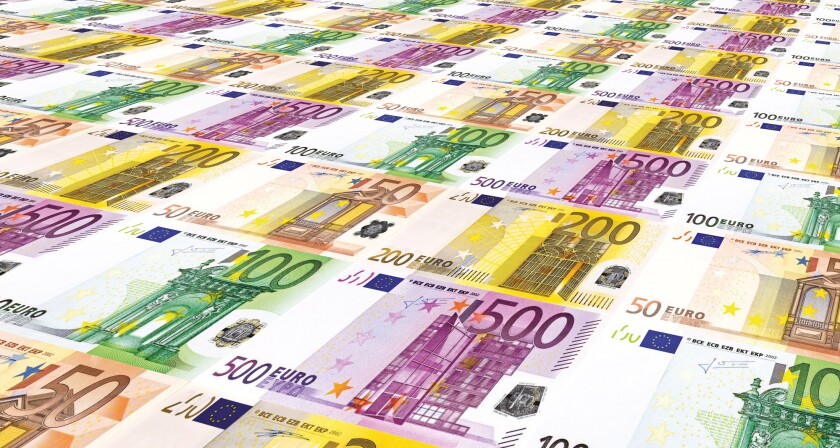The EU has established a robust system for controlling state aid. However, until recently, there was no legislation in place to address and solve the issues arising from distorting subsidies provided to undertakings from third countries. This gap has now been addressed with the introduction of Regulation (EU) 2022/2560 of 14 December 2022 on foreign subsidies distorting the internal market (the Regulation).
The Regulation applies when a third country directly or indirectly provides a financial contribution that:
Gives an advantage to an undertaking operating in the internal market; and
Is selective (limited to one or more undertakings or one or more sectors).
The term ‘financial contribution’ is broadly defined and encompasses not only capital injections, loans, guarantees, or tax incentives but also debt restructuring or the supply or purchase of goods or services not at arm’s length conditions.
Conversely, the following financial contributions are not within the scope of the Regulation:
Those that are less than €4 million (approximately $3.5 million) over three consecutive years;
Those that do not exceed the amount of a ‘de minimis’ aid (i.e., €200,000, under Article 3, paragraph 2 of Regulation (EU) No 1407/2013) per third country over three consecutive years; or
Those that are granted as compensation for damages caused by natural disasters or exceptional occurrences.
Concentrations and public procurement procedures
The Regulation has specific rules governing ‘concentrations’ and ‘public procurement procedures’.
The former are defined as a “change of control on a lasting basis” of an undertaking as a result of a merger or acquisition of “direct or indirect control of the whole or parts of one or more other undertakings”, whether through the acquisition of holdings in the capital or assets, by contract or by any other means. A joint venture performing on a lasting basis all the functions of an autonomous economic entity is considered a concentration as well.
Before a concentration takes place, there is a prior notification requirement if at least one of the undertakings involved (including the relevant group) has a turnover of more than €500 million and has received financial contributions of more than €50 million in the previous three years.
With regard to public procurement tenders, the relevant subsidies are those that “enable an economic operator to submit a tender that is unduly advantageous in relation to the works, supplies or services concerned”. The obligation of prior notification is triggered if the contract is worth more than €250 million (or €125 million in the case of a multi-lot tender) and if the relevant subsidies amounting to €4 million per third country have been received in the previous three years.
The subsidy amount is determined assuming all the contributions received by the “economic operator, including its subsidiary companies without commercial autonomy, its holding companies, and, where applicable, its main subcontractors and suppliers involved in the same tender”.
The European Commission’s powers
Upon completion of the post-notification survey, if the distortionary potential of the subsidy is established, the European Commission has the power to prevent or cancel the concentration, and to suspend or deny the award of the tender.
Anyone – including EU member states, natural and legal persons, and associations – may report suspicious transactions carried out by undertakings to the European Commission. The latter may then decide to take specific actions, such as conducting a preliminary examination or requesting the company in question to provide relevant information, as if it were under a prior obligation. Indeed, the European Commission has extensive power to:
Investigate (also on its own initiative) and inspect companies within the EU and in non-EU states, provided that the relevant related authorities agree;
Impose redressive measures to remedy the distortion in the internal market actually or potentially caused by a foreign subsidy; and
Impose sanctions (ranging from 1% to 10% of turnover).
Moreover, the European Commission has some flexibility in conducting its evaluations: it may, indeed, balance the negative effects of a foreign subsidy in terms of distortion in the internal market against the positive effects on the development of the relevant subsidised economic activity.
An assessment of the Regulation
The Regulation serves an undoubtedly desirable and equitable purpose of eliminating a potential distortion of the internal market. However, it is expected to influence economic operators significantly. EU companies will be required to scrutinise all subsidies received in the past three years to determine whether they qualify as distorting subsidies and if they are subject to notification obligations. The subsidies are often tax driven and it will also be paramount to carry out a proper analysis of all the tax measures from which the EU undertakings have benefitted. These tasks are onerous and come with the risk of substantial penalties in the event of non-compliance.
Moreover, the Regulation potentially seems to overlap the transfer pricing rules, given the relevance of the supply of goods and services “not in line with normal market conditions”, as stated in Whereas 13 of the Regulation. Such a provision could be groundbreaking and potentially address uncountable transactions and undertakings.
At the same time, the possibility granted to anyone to report suspected distortionary foreign subsidies makes the Regulation more manageable, but it creates the potential for misuse by unscrupulous operators.
In fact, the Regulation could be instrumentally used to impede the awarding of tenders by reporting even the slightest suspicion of a non-EU subsidy in the competing consortium. This would trigger an investigation by the European Commission, ultimately postponing, or even freezing, the contract award.
These are scenarios that require careful attention, particularly in the current context, where tenders for the implementation of the National Recovery and Resilience Plan are about to commence.













